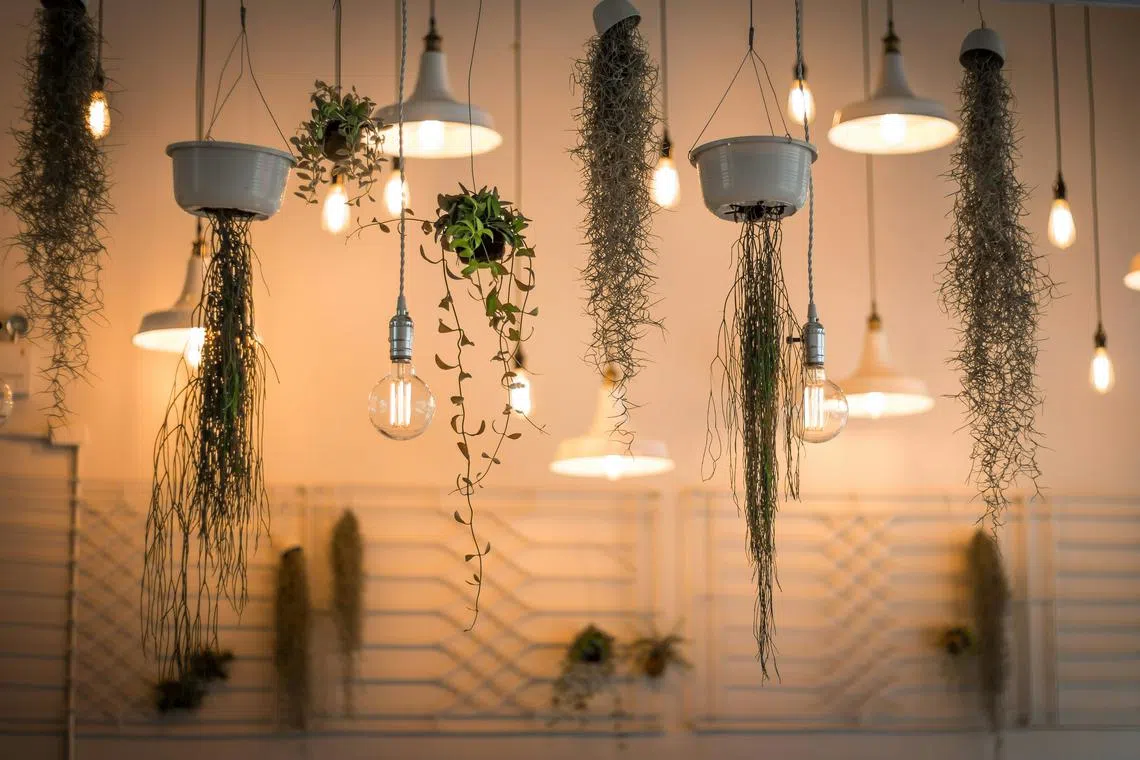Energy efficiency must double in pace by 2030 to hit climate goals, IEA says
Sign up now: Get ST's newsletters delivered to your inbox

Record high energy costs in 2022 helped to spur the take-up of measures like switching to LED lightbulbs.
PHOTO ILLUSTRATION: UNSPLASH
Follow topic:
LONDON – Countries must double the pace of measures to improve energy efficiency if global climate targets are to be met, the International Energy Agency (IEA) said in a report on Nov 29.
Record high energy costs in 2022 helped to spur the take-up of measures such as replacing gas boilers with heat pumps and switching to LED lightbulbs, but the rate of energy efficiency progress has since slowed, the IEA said.
The 2023 United Nations climate talks begin on Nov 30 in the United Arab Emirates and will be the first global assessment of progress since the landmark Paris Agreement in 2015. It set a goal of limiting global warming to well below 2 deg C, while aiming for a cap of 1.5 deg C.
“The world’s climate ambitions hinge on our ability to make the global energy system much more efficient,” IEA executive director Fatih Birol said.
“If governments want to keep the 1.5 deg C goal within reach while supporting energy security, doubling energy efficiency progress this decade is critical,” he added.
The IEA said investments have led to energy being used 1.3 per cent more efficiently in 2023 compared with in 2022, but that the improvement rate had slowed from a 2 per cent increase in 2022. Energy efficiency needs to double from that level to 4 per cent a year for climate targets to be met, it said.
Some US$700 billion (S$933 billion) has been spent globally on energy efficiency support since 2020, the IEA said. Of this, almost 70 per cent was spent in just five countries – France, Germany, Italy, Norway and the United States. REUTERS

